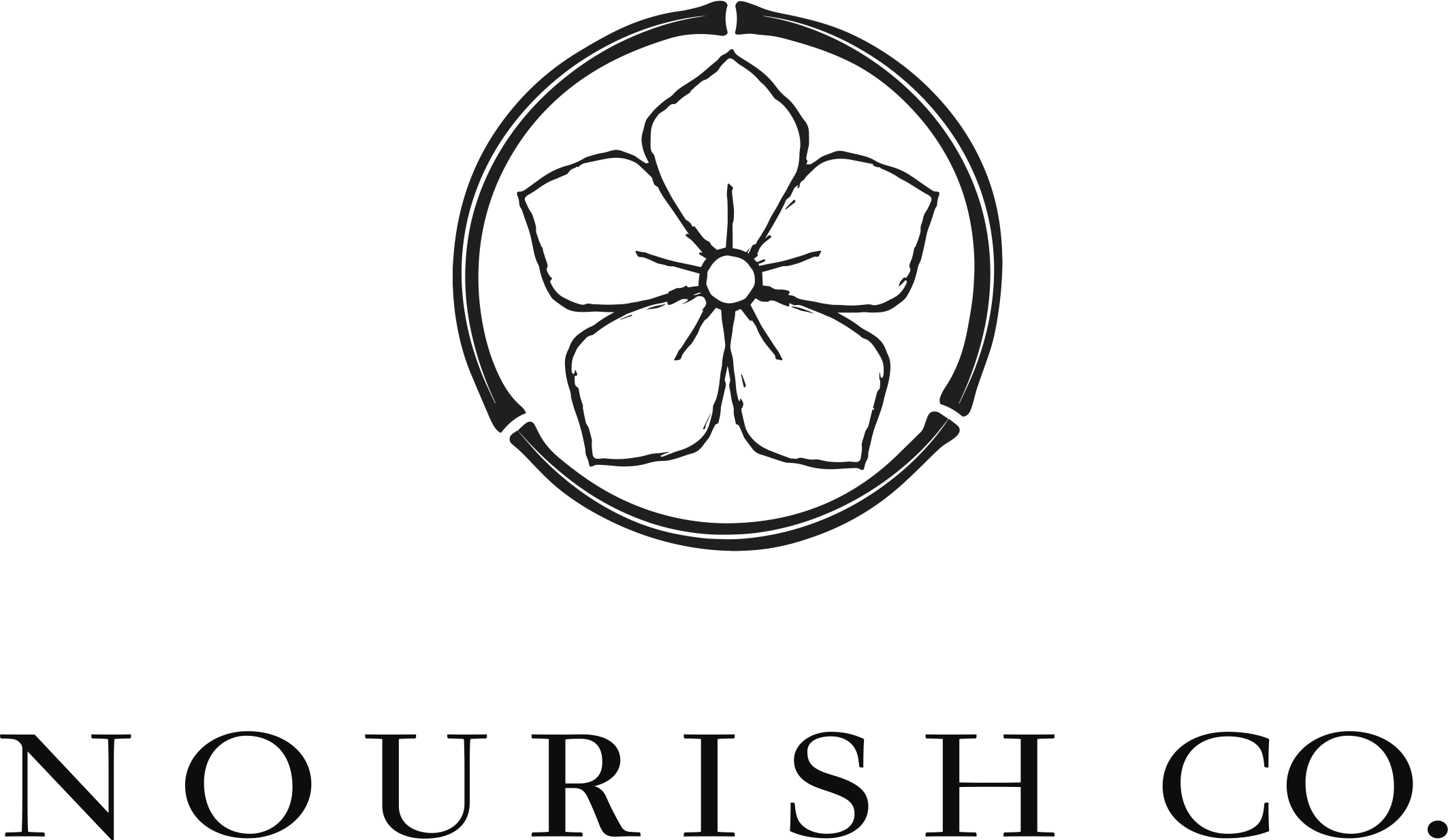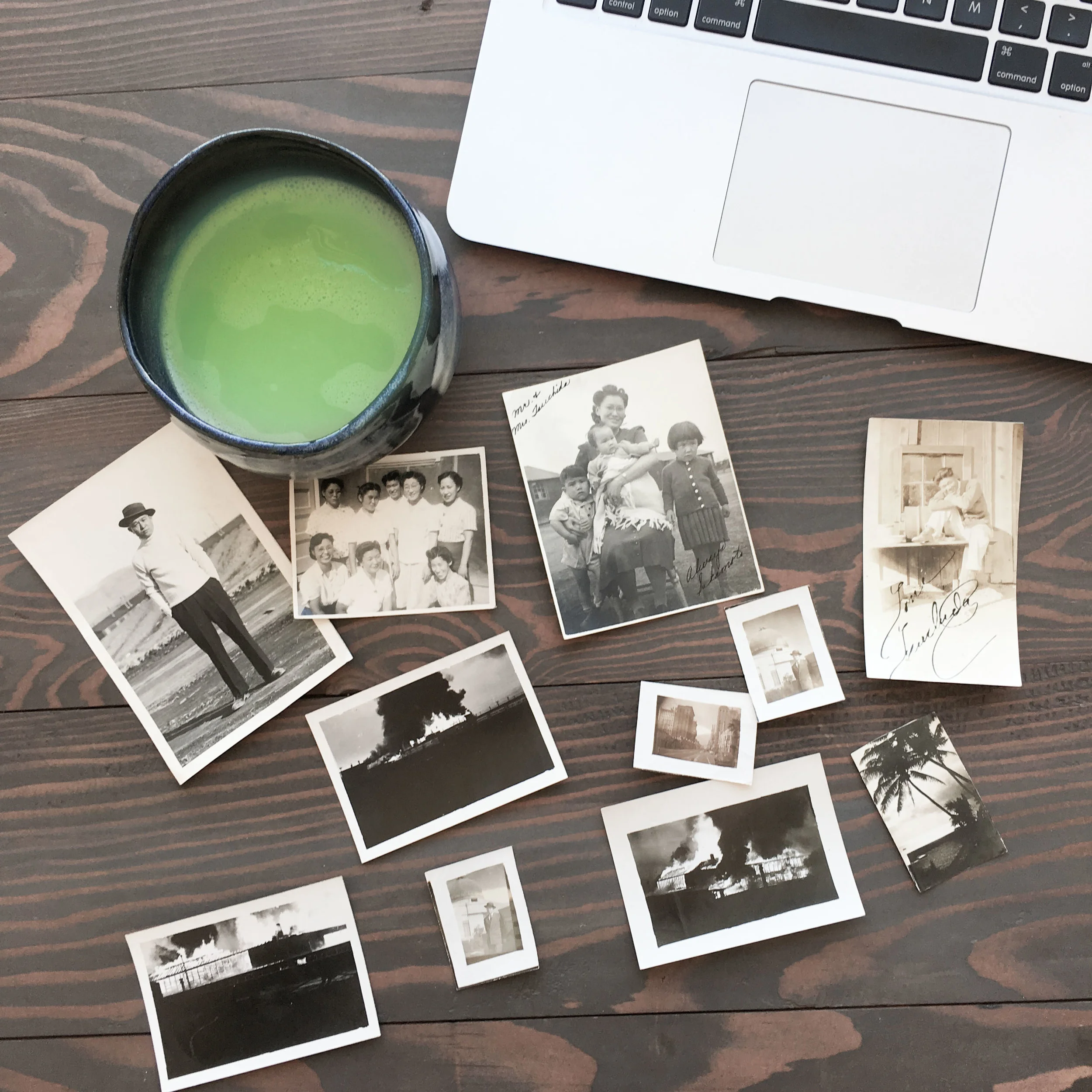Diana Emiko Tsuchida on Oral History and the Importance of Preserving the Stories of our Ancestors
Last year, I was listening to one of my favorite podcasts, Code Switch (a podcast about race and identity), when I heard an episode that triggered something powerful in me. It was the story of a young Japanese American woman whose father and grandparents were sent to Tule Lake prison camp during World War II. She spoke of losing so much of her heritage before she was old enough to carefully collect the pieces. I immediately reached out to her, we went to lunch, and the rest, as they say, is history. We became fast friends and supporters of each other's work. I don't know many Japanese American women in my peer group who care this deeply about our heritage. Getting to know Diana has given me hope that we can create a community of other JA people working to reclaim the lost parts of our heritage.
Diana and her Dad at the annual Manzanar Pilgrimage in 2017
Diana and her Dad
Me and Diana, taken at our Day of Remembrance event at the California Historical Society (rocking our Alyson Iwamoto necklaces!) Photo by Dena Paez.
Diana's story:
I'm fourth generation Japanese American, Yonsei, originally from San Jose. I suppose my grandfather willed me into this work! He had no way of knowing it would happen, but his indignation and resistance to the treatment inside camp got somehow passed down to me and instilled this need to share camp stories and keep asking questions about it. I don't think I'll ever reach a point when I won't want to know what someone went through during WWII because I'm not sure the people who experienced it will ever fully heal.
I come from a mixed heritage household - my mom is Scottish/Irish and my dad is Japanese American, so he experienced camp as a young kid. I'm very close with him but I didn't really know my paternal grandparents well. I had a wonderful relationship with my grandmother but it was just very simple and surface, since we couldn't communicate in the same language. My grandfather passed when I was eight so I was way too young to know him.
Diana's grandfather and dad (taken in San Francisco right before the war)
Tamotsu Tsuchida (Diana's grandfather) wearing a bad ass hat in Tule Lake
About her grandfather...
My grandfather was pissed about the entire hysteria directed towards the Japanese Americans during WWII. He was educated in Japan and so with little command of English, it was easy to see why he sympathized with Japan during the war and became resentful of the U.S. They took his business license away right after Pearl Harbor and I think that was the beginning of the end. Before he died, he was trying to write his life story and get it published. Somewhere along the way, we lost the manuscript. When I was old enough to understand, I wanted to pick up the pieces of this lost history. Since we now have grandkids in the picture (my nephews) it's super important to have something in tact for them to read and listen to, and know that this happened in their family.
Diana's grandfather's "Leupp Group" after the camps (he's in the front right). This was the group of men who were sent to a Citizen Isolation Center in Leupp, Arizona for their "unruly" behavior. Diana loves her grandpa's smug expression!
On oral history...
Oral history is allowing someone to share their experience through their own recollection and voice. I think my first exposure to the power of oral history was when I studied Ethnic Studies at San Francisco State, where we practiced oral traditions as an alternative to mainstream histories. Often times oral history is one of few methods a marginalized or oppressed group can keep their own record. If I were to think about some of the earliest oral traditions in the United States, there are songs that were sung by enslaved peoples, which not only told stories but provided people with information about escape routes or other crucial pieces of knowledge.
On how to gently coax someone to share about a painful experience...
You never have to let them know that the painful things must come up - just ask them about relatively benign things in the beginning!
I think the most crucial thing is to meet them where they are - go to their home and I would suggest not video taping it. Make your baachan (grandma) or jiichan (grandfather) forget that it's being recorded and they may simply open up. If you can tell they're reluctant, really be sincere about why you want to hear their story... Is it for your own children someday? Are you really afraid in this era of Trump? Are you truly afraid of them passing without ever hearing their feelings about camp? I would show your cards first in order to get them to show theirs. I think a willingness to be vulnerable in wanting to know what happened is key. People pick up on that.
The other way to go is to have someone do this for you! I've found that people can't open up to their own family members, as strange as it seems. But sometimes if you get a neutral third party, some kind of wall gets broken down.
Diana's grandfather and dad swimming
How to record your session...
I have an iPhone and will often use my Voice Memos, but recently I downloaded an app called Voice Recorder, which actually records at a higher quality. One crucial thing is it that you must talk in a quiet place. Since the phones are pretty great at picking up noise, they'll pick up everything in a cafe or restaurant if you do it there (beware the clanking of plates). I'd say to go to their home and record so that if they bring pictures out, they'll have access to them.
On how to find more information if your elders are gone...
I've set up a resource page on Tessaku to help guide people through this process. If you're looking for a connection to who may have known your grandparents or relatives, check the churches they attended, or go back to the elementary or high schools they went to. The National Archives allows you to order your relatives' WRA records and even though this is only a fraction of their story, it's a super fascinating one to see.
The Tsuchida and Mori families in Berkeley
Diana's step-by-step guide to recording stories from your elders:
If I am asking about Japanese American interment, I ask which camp they were held in so that I can get a sense of location and how far they were forced to move from their original homes. I also try to know their age at the time of camp, since that can really change the questions.
Request that they prep photos and old family pictures to share.
I have a list of general questions that I want to go over and usually ask. However, I often stray from that and let the storyteller take the conversation to where it wants to go. As a general rule, you want your questions to be open-ended, to allow someone to give you explanations or a lot of details about a certain memory. Try your best not to ask a question that only allows them to answer with a yes or no. And of course, just be willing to let them drive it!
Make sure there's enough room on your phone to record :)
Take a couple of recent photos of the storyteller so that people know who they are today.
Tule Lake prison camp. After the US government sent Japanese-Americans to prison camps during WWII, those who checked the box "no" to the US loyalty questionnaire were segregated to Tule Lake and unjustly labeled as "disloyal".
On the importance of preserving the stories of our ancestors...
Everything around us is instantaneous and fast and always speeding up. But much like the food industry has taken a cue from this and gone the opposite way of slow food, thoughtful preparation, and getting back in touch with heritage, I think preserving stories can do the same thing. It's almost like the trend of DNA discovery. Instead of "what are you?", it's "who are you?" Who are your relatives, what kind of personalities and perspectives did you grow up with or not even know existed in your family?
Where to learn more about Japanese-American forced incarceration:
Densho is awesome. And they're always on top of the news and making links to the incarceration so I'd highly recommend going there for a one-stop resource. I'd also recommend visiting the Japanese American Museum of San Jose, where there's an actual barrack replica and tons of artifacts from camp. There are also some great films and documentaries - And Then They Came For Us and Relocation, Arkansas are really well done films.
Photo of George and Mary Shimizu, from her many interviews of the survivors of the Japanese-American incarceration camps during WWII.
What's next for Tessaku?
I'd love to take these interviews and put them into book form, or perhaps some kind of magazine series. Since the original Tessaku was a self-published magazine inside Tule Lake, I love the symbolic act of putting volumes of stories out again and paying homage to the people who wanted a self-determining resource. I'd also love to take Tessaku on the road! I am envisioning gatherings across the country that invite people from different cities to share their memories and stories, and embed some kind of artistic element into them whether through food, music or photography.
*Diana is also a featured speaker at TEDX Peace Plaza, which will be held in Japantown on Saturday, March 24th. I'll be there, cheering her on!
*She was also just interviewed on NBC Bay Area!
How can we support Tessaku?
Please read and share the stories, and follow me on Instagram at @tessakuproject! Any interaction with these interviews is wonderful. Because I'm a totally independent historian with no grant backers, if you're able to help in a monetary way that is even more amazing. I'm currently on Patreon and have a small group of patrons who support me every month with a donation of their choice - every little bit is extremely helpful in allowing me to travel and meet people and take time to publish the pieces.
Thanks so much for sharing your story with us, Diana!
*All photos courtesy of Diana Emiko Tsuchida, unless otherwise specified.












